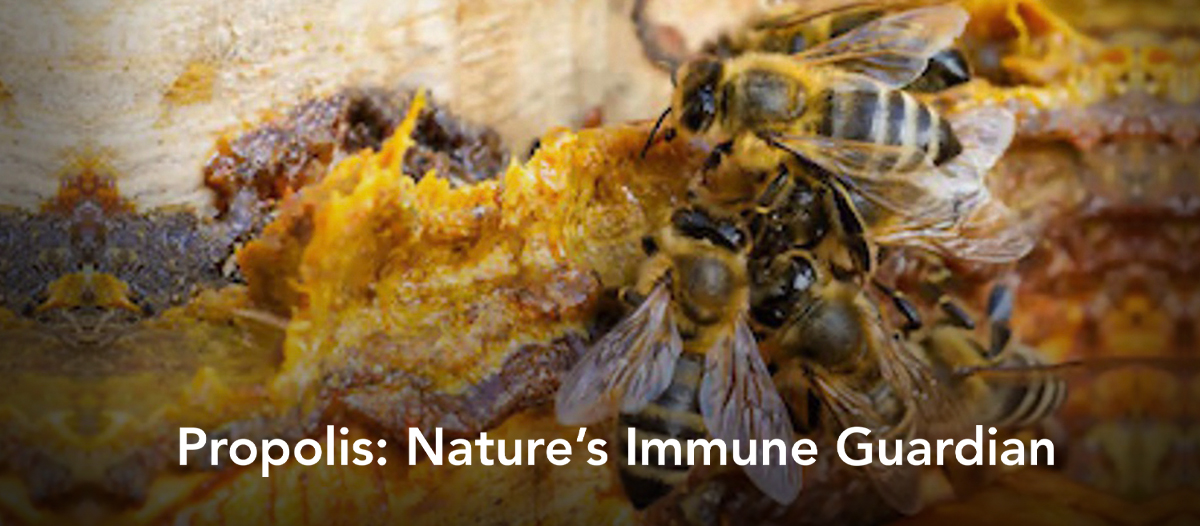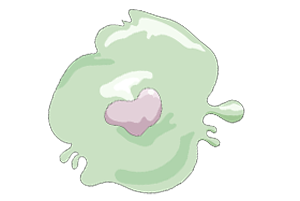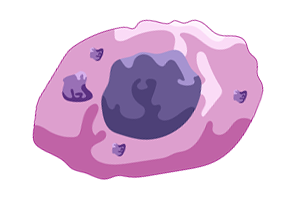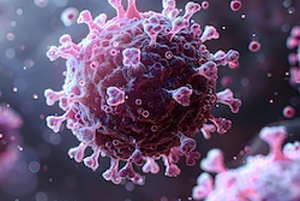Propolis: Nature’s Immune Guardian
by Mark J Kaylor
In the realm of natural remedies, propolis stands out as a versatile and powerful substance with extensive benefits for immune health. Often known as “bee glue,” this resinous compound produced by bees has been revered for centuries due to its antibacterial, antiviral, and anti-inflammatory properties. But what exactly makes propolis so beneficial for our immune system? By examining the physiological processes behind its immune-enhancing activities, we can see why this natural marvel continues to captivate scientists and holistic health advocates alike. This detailed exploration unveils how propolis interacts with immune cells, enhances pathogen- fighting abilities, and contributes to immune homeostasis, underscoring its potential in supporting immune resilience and overall well-being.
1. Enhancement of Macrophage Activity
Propolis contains a rich array of flavonoids, caffeic acid phenethyl ester (CAPE), and other polyphenolic compounds that enhance macrophage function. Macrophages are a crucial component of the immune system, acting as the body’s first line of defense by identifying and engulfing pathogens. Propolis influences macrophage activation through its antioxidant and anti-inflammatory components, which promote the expression of genes involved in macrophage proliferation and activity. By supporting macrophages, propolis aids the body in efficiently clearing harmful pathogens, contributing to a faster and more effective immune response.
2. Stimulation of Natural Killer (NK) Cell Activity
Natural killer (NK) cells are specialized lymphocytes that play a pivotal role in the immune system by targeting and destroying virus-infected cells and tumor cells. Propolis contains CAPE and artepillin C, which have been shown to stimulate NK cell cytotoxic activity. These compounds encourage NK cells to release perforin and granzymes, proteins that create pores in target cell membranes and trigger apoptosis in infected cells. Enhanced NK cell function is critical in controlling infections and preventing the development of certain cancers, making propolis a valuable immune ally.
3. Support for T-Cell Differentiation and Activation
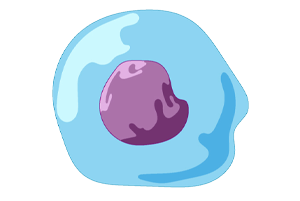 T-cells are central to adaptive immunity, with subsets like helper T-cells (Th) coordinating immune responses and cytotoxic T-cells directly attacking infected cells. Propolis enhances the differentiation of naïve T-cells into specialized subtypes, particularly Th1 and Th17 cells, which are essential for defense against bacterial and viral infections. Propolis-derived compounds such as apigenin and chrysin have been shown to modulate T-cell cytokine release, helping the immune system to effectively respond to pathogens without triggering excessive inflammation. By influencing T-cell activation and differentiation, propolis provides balanced immune support while reducing the risk of autoimmune reactions.
T-cells are central to adaptive immunity, with subsets like helper T-cells (Th) coordinating immune responses and cytotoxic T-cells directly attacking infected cells. Propolis enhances the differentiation of naïve T-cells into specialized subtypes, particularly Th1 and Th17 cells, which are essential for defense against bacterial and viral infections. Propolis-derived compounds such as apigenin and chrysin have been shown to modulate T-cell cytokine release, helping the immune system to effectively respond to pathogens without triggering excessive inflammation. By influencing T-cell activation and differentiation, propolis provides balanced immune support while reducing the risk of autoimmune reactions.
4. Promotion of Antibody Production
Propolis has been found to stimulate B-cell activity and the production of antibodies, which are vital for humoral immunity. The high concentration of flavonoids and other immune-modulating compounds in propolis enhances B-cell proliferation and the production of antibodies that target specific pathogens. Increased antibody production ensures that the immune system can recognize and neutralize pathogens faster upon future exposure, contributing to a more robust adaptive immune response. This is particularly beneficial for individuals with compromised immune systems, as propolis can help bolster antibody levels and resilience against infections.
5. Reduction of Inflammation and Oxidative Stress
Inflammation is a natural immune response, but chronic inflammation and oxidative stress can compromise immunity and lead to tissue damage. Propolis contains CAPE, quercetin, and other potent antioxidants that help reduce oxidative stress and regulate inflammatory pathways. By inhibiting the nuclear factor kappa B (NF-κB) pathway—a major driver of inflammation—propolis reduces the production of pro-inflammatory cytokines like interleukin-6 (IL-6) and tumor necrosis factor-alpha (TNF-α). Through this regulation, propolis prevents excessive inflammation while allowing the immune system to target pathogens effectively, supporting long-term immune health.
6. Modulation of Dendritic Cell Function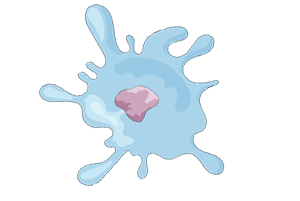
Dendritic cells are antigen-presenting cells (APCs) that capture pathogens and present their antigens to T-cells, initiating adaptive immune responses. Propolis has been shown to improve dendritic cell function, enhancing their ability to process and present antigens effectively. Studies suggest that propolis components such as caffeic acid and p-coumaric acid enhance the maturation of dendritic cells, improving their ability to trigger targeted immune responses without overstimulation. This modulation is crucial for preventing autoimmune reactions and ensuring a focused immune defense against actual threats.
7. Inhibition of Pathogen Adhesion and Biofilm Formation
Propolis exhibits antimicrobial activity that not only kills pathogens but also prevents their adhesion to host cells. This is particularly important in the respiratory and digestive tracts, where pathogens often attempt to establish biofilms, protective layers that shield them from immune attacks and antibiotics. The flavonoids in propolis disrupt biofilm formation by preventing bacteria from adhering to surfaces and inhibiting the quorum-sensing communication necessary for biofilm maturation. By reducing biofilm formation, propolis prevents chronic infections and facilitates more efficient pathogen clearance by immune cells.
8. Antiviral Effects and Inhibition of Viral Replication
Certain compounds in propolis, including CAPE and rutin, have been observed to inhibit viral replication. Propolis disrupts viral processes at multiple stages, from preventing virus entry into host cells to inhibiting the enzymes necessary for viral RNA synthesis. In particular, studies have shown that propolis can interfere with the replication of viruses like influenza and herpes simplex virus. This antiviral activity not only reduces viral load but also prevents infections from spreading, aiding the immune system in controlling viral outbreaks effectively.
9. Enhancement of Gut Microbiome Health
The gut microbiome is closely tied to immune function, as a healthy balance of beneficial bacteria can help regulate immune responses and prevent infections. Propolis contains prebiotic compounds that encourage the growth of beneficial gut bacteria while inhibiting pathogenic strains. By supporting gut microbiome diversity, propolis promotes the production of short-chain fatty acids (SCFAs) that help regulate inflammation and improve gut barrier integrity. This gut-immune axis support is essential for overall immune health, as a resilient gut microbiome can prevent pathogens from entering the bloodstream and triggering systemic immune responses.
10. Protection of Mitochondrial Function and Energy Production
Mitochondria play a key role in immune cell function, providing the energy required for pathogen clearance. Propolis helps protect mitochondria from oxidative damage and supports ATP production, which fuels immune cell activity. The antioxidants in propolis safeguard mitochondrial DNA, reducing the risk of mutations that could impair immune cell function. Healthy mitochondria are crucial for effective immune responses, especially during periods of infection or inflammation when energy demands are high.
A Natural Guardian of Immunity
Propolis, nature’s immune guardian, showcases a remarkable array of physiological mechanisms that support immune health on multiple levels. From enhancing macrophage and NK cell activity to reducing inflammation and oxidative stress, this bee-derived marvel provides a holistic approach to immune support. Its multifaceted actions on immune cells, combined with its antimicrobial properties, make propolis a valuable ally in both preventive and therapeutic applications for immune resilience.
As we continue to learn more about the intricate ways in which propolis interacts with our immune system, it’s clear that this ancient remedy holds a special place in modern holistic health. For anyone seeking natural ways to fortify immunity, propolis offers a time-tested solution that bridges traditional wisdom and modern science—a true testament to the power of nature in safeguarding our well-being.
Mark J. Kaylor is a passionate advocate for holistic health and natural remedies, with a focus on extending both lifespan and healthspan. As the founder of the Radiant Health Project and host of Radiant Health Podcast, Mark blends in-depth research with traditional wisdom to empower others on their journey to vibrant health. Through his writing and speaking, he shares insights into the transformative power of herbs, nutrition, and lifestyle practices.
Disclaimer: All information and results stated here is for educational and entertainment purposes only. The information mentioned here is not specific medical advice for any individual and is not intended to be used for self-diagnosis or treatment. This content should not substitute medical advice from a health professional. Always consult your health practitioner regarding any health or medical conditions.



